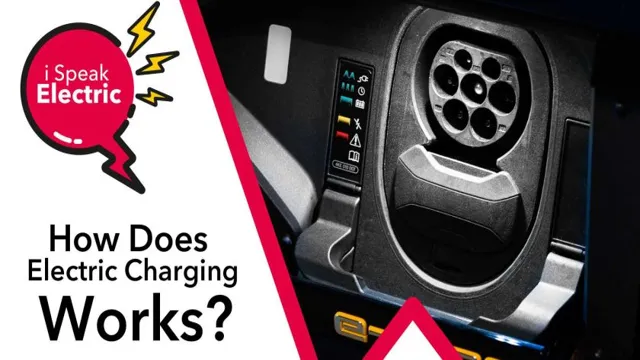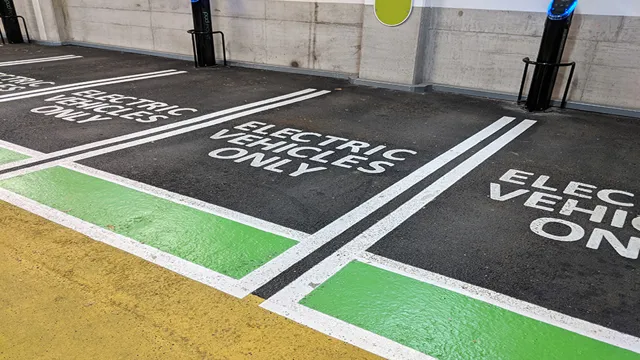Power Up Your Commute: The Benefits of Electric Car Charging at Work as a Tax-Free Benefit-in-Kind
If you’re considering purchasing an electric car, you’ve probably heard about the benefits of reduced emissions, lower running costs, and increased sustainability. But did you know that electric car charging can also impact your Benefit in Kind (BIK) taxation? In recent years, there has been a growing trend towards electric and hybrid cars as governments and companies seek to reduce their carbon footprint and promote greener transport. However, the tax implications of owning an electric car can be complex, particularly when it comes to BIK, which is calculated based on the value of the car and its CO2 emissions.
In this blog, we’ll explore the relationship between electric car charging and BIK taxation, breaking down the different factors that can impact your tax bill. We’ll also discuss some of the incentives and initiatives that are available to electric car owners, such as tax credits, grants, and charging infrastructure, to help you make an informed decision about whether an electric car is right for you. So, if you’re curious about how electric car charging and BIK taxation intersect, or you’re looking for ways to reduce your carbon footprint and save money on your tax bill, read on!
Introduction
Electric car charging at work can be a huge benefit in kind for employees who drive electric vehicles. Not only does it provide a convenient and reliable source of power for their car, but it can also save them money on their daily commute. With the increasing popularity of electric vehicles, more and more employers are starting to offer this service to their staff.
This can also be a great way for businesses to show their commitment to sustainability and reducing their carbon footprint. Plus, with the government incentives for electric cars, offering workplace charging can be a valuable tax break for companies. Overall, providing electric car charging at work is a win-win for both employers and employees, promoting environmental responsibility and saving money in the long term.
What is Benefit in Kind?
Benefit in kind is a term used to describe the taxable benefits or perks that an employer provides to their employees as part of their job. These benefits could be in the form of company cars, health insurance, accommodation, or any other non-salary benefit. The value of these benefits is added to the employee’s income and taxed accordingly.
Benefit in kind is a crucial consideration for both the employer and the employee since it affects their net earnings. Nonetheless, by providing work benefits, employers indirectly increase the overall job satisfaction of employees and improve their performance. Therefore, understanding benefit in kind and its implications is critical for both employers and employees.

Why Choose Electric Cars?
Electric cars have been around for a while now, and their popularity has been on the rise in recent years. But why should you choose an electric car over a traditional gas-powered vehicle? Well, there are plenty of reasons. First and foremost, electric cars are much better for the environment.
They produce zero emissions, meaning they don’t release harmful pollutants into the air. This is especially important in today’s world, where air pollution is becoming a major health concern. Additionally, electric cars are cheaper to operate in the long run.
While they may have a higher upfront cost, they require much less maintenance and have lower operating costs. Plus, with advancements in technology, electric cars now have longer ranges and can be charged more quickly than ever before. So, if you’re looking for a more eco-friendly and cost-effective way to get around, an electric car might just be the perfect choice for you.
Benefits of Electric Car Charging at Work
One of the major benefits of electric car charging at work is the “benefit in kind” that employees can receive from their employers. Not only does it provide a convenient and cost-effective way for employees to charge their electric vehicles during the work day, but it can also have financial benefits. If an employer offers electric car charging as a perk, it is considered a benefit in kind, which means it is a non-cash benefit that is taxable.
However, the rates for this tax are generally much lower than for other work-related expenses like company cars. Additionally, providing electric car charging at work can boost employee morale and improve the company’s overall commitment to sustainable practices. It’s a win-win situation for both the employee and the employer, with the added bonus of reducing carbon emissions and promoting environmental responsibility.
Cost Savings vs Gasoline Cars
When it comes to cost savings, electric cars have a significant advantage over their gasoline counterparts. And one way you can maximize those savings is by charging your electric car at work. Not only does this save you time and inconvenience, but it can also save you money.
Instead of paying for expensive public charging stations, you can take advantage of your workplace’s free charging stations. Additionally, many employers offer incentives for employees who drive electric cars, such as free parking or electricity discounts. So not only are you doing your part for the environment, but you’re also saving money in the process.
It’s a win-win situation.
Corporate Social Responsibility
As companies continue to incorporate Corporate Social Responsibility (CSR) practices into their business operations, implementing electric car charging stations at work is becoming increasingly popular. Not only does this initiative promote sustainability, but it also offers a range of benefits for the company and its employees. By providing electric car charging stations, employers can attract and retain employees who prioritize eco-friendly practices.
Additionally, offering charging stations can improve the company’s public image as a socially responsible organization. From a financial perspective, electric cars are typically less expensive to operate than gas-powered vehicles, allowing employees to save money on transportation costs. Finally, providing charging stations can also boost employee productivity by reducing the stress associated with range anxiety and reducing the time spent refueling vehicles.
With these benefits in mind, it’s clear that implementing electric car charging stations is a smart move for employers who want to demonstrate their commitment to sustainability and foster a more productive, engaged workforce.
Increased Productivity of Employees
Electric car charging stations at work can offer numerous benefits, including increased productivity of employees. When workers have access to charging stations, they are more likely to be motivated to switch to electric cars. This is because they no longer have to worry about running out of battery while commuting.
Instead, they can rely on charging their cars at work. This can save a significant amount of time and reduce stress levels since they no longer have to plan their commutes around finding a charging station. Additionally, when employees can charge their electric cars at work, they are more likely to arrive at work on time and can start their workdays earlier.
This means they can get more done and be more productive. Investing in electric car charging stations may seem like a small change, but it can have a significant impact on the productivity and satisfaction of employees.
How to Implement Electric Car Charging at Work
Implementing electric car charging at work is a great way to promote sustainable transportation and reduce carbon emissions. Not only does it benefit the environment, but it also offers a major perk to your employees. By providing electric car charging stations, you make it convenient for your employees to charge their vehicles while they work.
This can potentially save them hundreds of dollars a year in fuel costs and maintenance, while also reducing their carbon footprint. Additionally, offering electric car charging as a benefit in kind may attract new talent to your company who prioritize environmental responsibility and sustainability. Furthermore, offering this service can differentiate your company from competitors, setting you apart as a forward-thinking and responsible organization.
With the growing popularity of electric cars, it is becoming increasingly essential for businesses to offer electric car charging at work to meet the evolving needs of their employees and demonstrate their commitment to sustainable practices.
Installation Cost and Requirements
Implementing electric car charging stations at work can be a great way to encourage employee sustainability and reduce the carbon footprint of your business. However, it’s important to consider the installation cost and requirements before doing so. Depending on the size of your workplace and the number of charging stations you want to install, costs can range anywhere from a few thousand to tens of thousands of dollars.
Additionally, you’ll need to make sure that you have an adequate power supply and the necessary permits to install the charging stations. It’s important to work with a professional electrician who can assess your workplace’s electrical infrastructure and ensure that the installation is done safely and correctly. While the upfront costs may seem daunting, investing in electric car charging stations can ultimately save your business money in the long run while also promoting sustainability.
Optimization of Charging Infrastructure
Implement Electric Car Charging Implementing electric car charging at work is an essential measure that can significantly reduce the carbon footprint of any business. By having charging stations on-site, employees can recharge their electric vehicles while they work, eliminating the need for them to stop at public charging stations en route, which can result in range anxiety. Installing charging stations is not as complicated as you might think; in fact, many companies now offer turnkey solutions that cater to businesses of all sizes.
These providers will work with you to determine the number and type of charging stations required, the appropriate location and power supply, and even assist with installation and maintenance. By incorporating electric car charging, companies can make a significant contribution to reducing carbon emissions, while also fostering a more eco-friendly work culture.
Conclusion
In conclusion, it’s electrifying to see the benefits that electric car charging at work can provide as a benefit in kind. Not only does it encourage eco-friendliness and reduce carbon emissions, but it also saves employees time and money. So why not rev up your workplace with an electric charging station and plug into a brighter, greener future?”
FAQs
What is benefit in kind (BIK) for electric car charging at work?
Benefit in kind (BIK) is the additional taxable income an employee must pay when they receive certain non-cash benefits from their employer, such as free electric car charging at work.
Do employees need to pay tax for charging their electric car at work?
If an employee charges their electric car at work and there is no charge for the electricity used, then they may be liable to pay benefit in kind tax.
What is the benefit of providing electric car charging at work for employers?
Providing electric car charging at work can help attract and retain employees, reduce their commuting costs, and improve the company’s environmental credentials.
How can employers calculate the benefit in kind tax for electric car charging at work?
The benefit in kind tax for electric car charging at work can be calculated based on the cost of the electricity used by the employee for their personal use, multiplied by the appropriate BIK percentage set by the government. Employers should seek professional advice on how to calculate BIK tax correctly.

